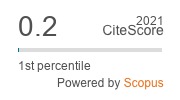A Machine Learning Framework with Hybrid Feature Engineering for Leveraging Brain Stroke Detection Performance
Keywords:
Machine Learning, Feature Engineering, Brain Stroke Detection, Supervised Learning, Hybrid Feature Engineering.Abstract
Machine Learning (ML) models are widely used in solving real world problems in all domains and healthcare is no exception. Since supervised learning methods in machine learning exploit learning from data to gain Artificial Intelligence (AI), it is indispensable to have adequate training sample that are of high quality. If not the performance of ML models will be deteriorated. In order to overcome this problem and enhance the state of the art in supervised learning, in this paper, we proposed a ML framework known as Brain Stroke Detection Framework (BSDF). We also proposed a hybrid feature engineering method that will be used in ML pipeline of the framework for leveraging prediction performance. The algorithm is known as Hybrid Feature Engineering (HFE) which is the combination of three filter based approaches. The framework is realized with another algorithm known as Supervised Machine Learning Models for Brain Stroke Detection (SML-BSD) which exploits HFE for improving prediction performance. It is a data driven approach to have cheaper alternative to complement Clinical Decision Support System (CDSS) in healthcare units. Many brain stroke prediction models could achieve 97% accuracy when HFE is used as underlying feature selection method. There is significant improvement in performance of different brain stroke prediction models with the hybrid feature engineering algorithm.



